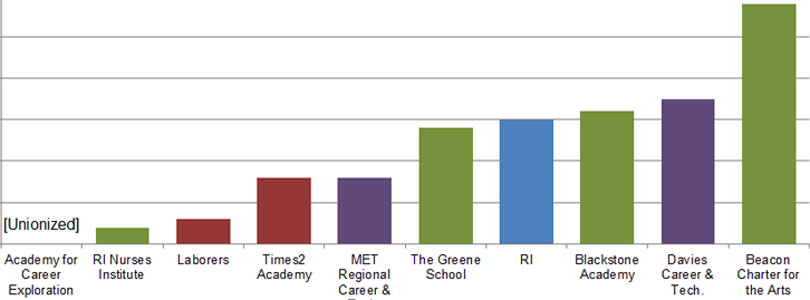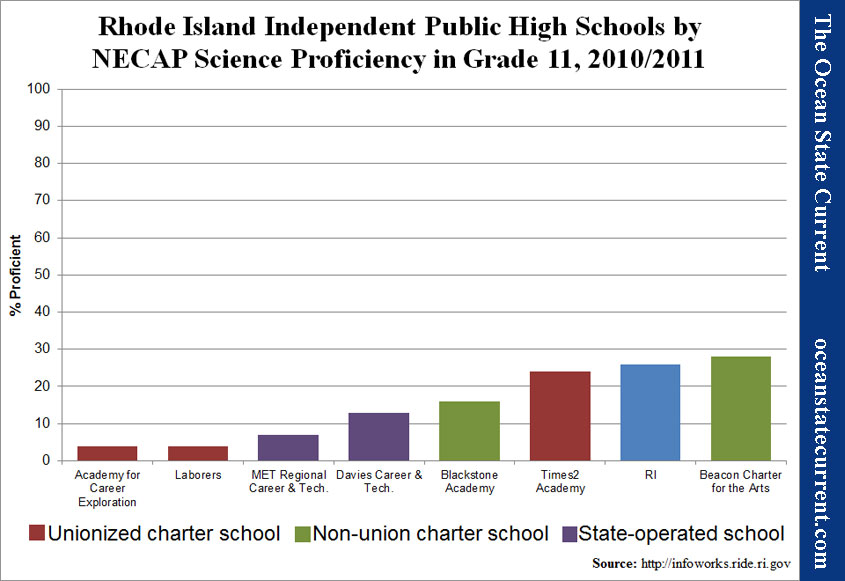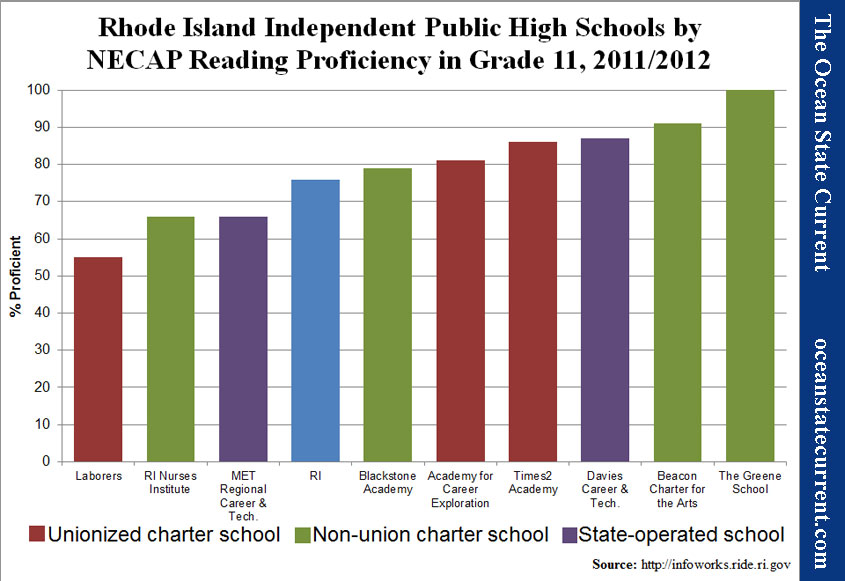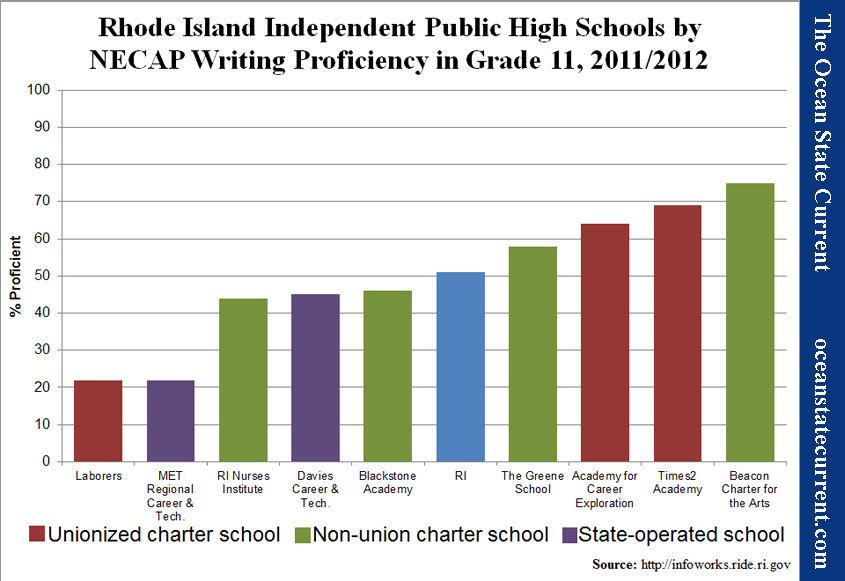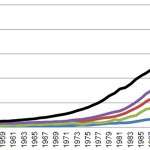Non-Union Charters Do Better in Math and Science
In the debate about American public schools, charter schools tend to occupy much of the same rhetorical space as those who advocate more expansive school choice, as well as those who argue against the unionization of teachers. Consequently, when news struck that Rhode Island’s Commissioner of Education, Deborah Gist, intends to recommend to the Board of Regents that the charter for the Academy for Career Exploration not be renewed, it resonated (to some) as a rebuke of the whole movement.
Wrote Bob Plain, the latest editor of the long-leading progressive blog in Rhode Island, RIFuture, “So much for the private sector being able to do it better.” In response, Marc Comtois, of the long-leading conservative blog in the state, Anchor Rising (of which I am administrator), reminded readers about the creative destruction side of free-market belief. One of the critical advantages of a system of school choice is that schools that nobody chooses simply disappear; writes Comtois:
Shutting down a bad performer is exactly the sort of immediate accountability (relatively speaking) that school reformers are looking for. If this flexibility existed in our public school system, then maybe there wouldn’t be a need for charter schools at all.
He also emphasizes an interesting fact that makes the ACE different from the typical vision of a charter school: Its teachers are unionized. In fact, in her article on Gist’s intention, Providence Journal reporter Jennifer Jordan points out that ACE is one of three such charters in the state:
The academy serves 225 high school students, most of whom are low-income. It opened in 1997 and is one of only three charters in Rhode Island that are part of school districts and employ unionized teachers. (The others are Times2 in Providence and New England Laborers’ in Cranston.)
The fact that ACE’s proficiency scores on the eleventh grade math test of the New England Common Assessment Program (NECAP) were highlighted as a reason for Gist’s decision creates the opportunity for a closer look. All three of the unionized charters that are part of regular school districts are high schools. There are four other charter high schools, as well as two regional public high schools operated by the state with some of the attributes of charters.
In comparing the schools, a few important differences ought to be considered. First, both the Greene School and the RI Nurses Institute are so new that no science NECAP scores have yet been published for them (results are being finalized from this spring’s test). Second, in addition to being new, RI Nurses is the only public high school in the state that begins in tenth grade, not ninth.
Additionally, neither the Metropolitan Regional Career and Technical Center nor the William M. Davies, Jr. Career & Technical High School are charters, but rather are regional state schools. Davies teachers are unionized, and have been since the inauguration of the school, while MET teachers are not. On the student side, entrance to the schools appears to differ. Entrance to the MET schools, for example, is entirely by lottery, with 75% of students coming from Providence, whereas Davies serves a limited number of towns north of Providence and requires applicants to take the Stanford 10 Diagnostic Test.
As the following chart shows, while Rhode Island’s public school system, in general, performs very poorly when it comes to math, the independent charter schools outperform their in-district charter peers.
Science results show some difference, most notably in the relative success of Times2, which is explicitly geared toward students’ engineering and science education.
To round out the comparison, the following charts show results for reading and writing. With these subjects, not only do Rhode Island public schools tend to do better, overall, but no correlation appears to exist between the unionization of the teachers and the results of the students.

